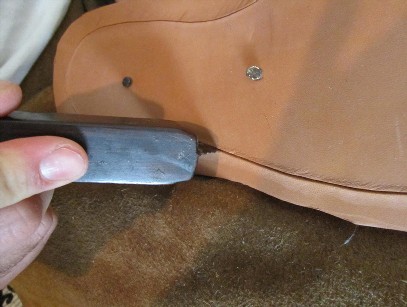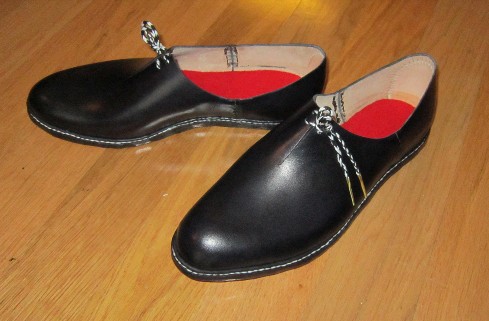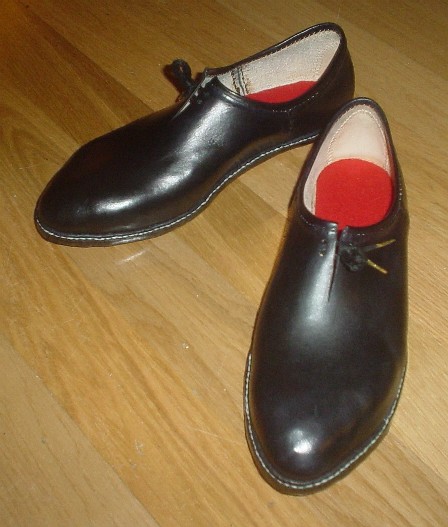 |
I just posted a new tutorial on Grooving the Outsole In early modern and modern welted shoes, the sewing that keeps the outsole attached to the welt is sunk into a groove on the underside of the outsole. This tutorial will hopefully help to illustrate the process I use to determine with the groove ought to lie. | |
More 16th Century shoes…
No, you are not losing your mind – yes, these are very similar to the other pair I made earlier. =) I had promised a friend of mine a pair of shoes for some wonderful calligraphy that she did a while back, and she very much like the earlier shoes for Cathyn, so here is the repeat!
 |
The only real difference here is the lack of a binding on the top edge, and that I used a square fingerloop braid instead of a flat braid. It comes out a bit thicker, more like a real shoelace. | |
Some Website Maintenance…
The new website should be up and fully functional! Of course, if you spot any errors, do let me know. One of the biggest things that was done was to integrate the web portion of the site with the blog seamlessly – there were some issues in terms of some blog posts getting cut off, which necessitated the hours of banging my head through a wall. In any event, if you have any comments or spot any issues, feel free to let me know!
16th C., but flexible…
I recently finished up a pair of 16th C. shoes for a good friend of mine. What I had in mind here was a pair that was appropriate to the century, but would also give an acceptable look for an earlier century as well.
